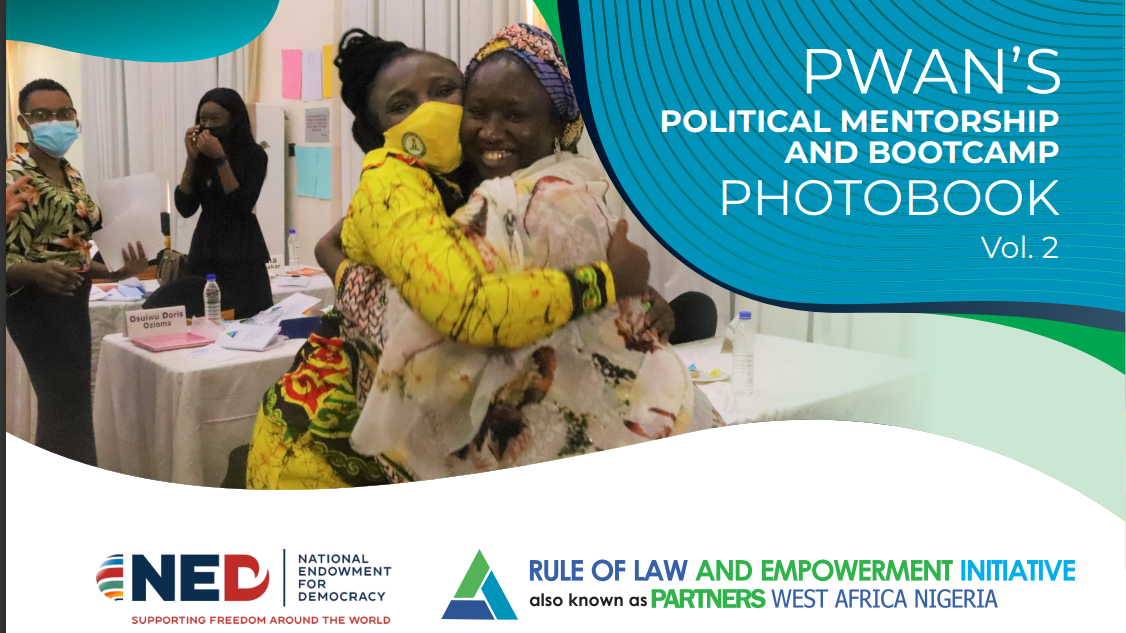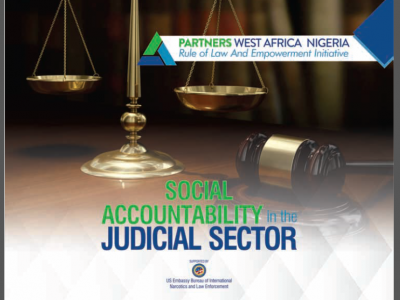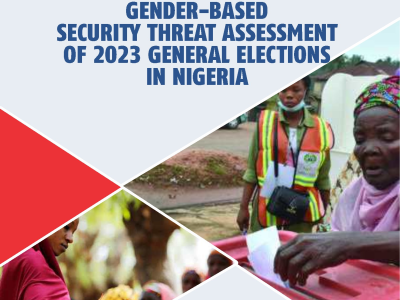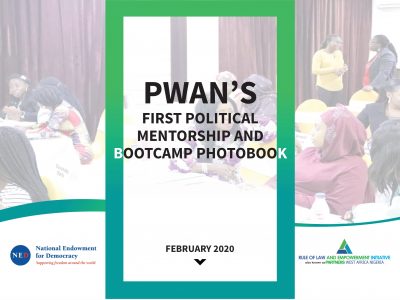
PWAN’S POLITICAL MENTORSHIP AND BOOTCAMP PHOTOBOOK 2
The results and appointments following the 2019 general elections, led to a decline in the representation of women at the Federal, State, and Local levels of government compared to the previous administration. 2,970 women were on the 2019 electoral ballot, representing only 11.36% of nominated candidates. Of this number, 60 women are currently in office representing about 4% of elected officials. This is a decline from the 2015-19 period, where women formed 5.65% of elected officials.
Since the re-emergence of democracy, Nigeria has struggled with attaining gender affirmative action in politics and governance. It is based on this that PWAN has worked over the years to understand the root causes of the exclusion of women in politics and address them through awareness creation, capacity building for women, and mentorship.
[ddownload id=”5214″ text=”DOWNLOAD FILE”]



